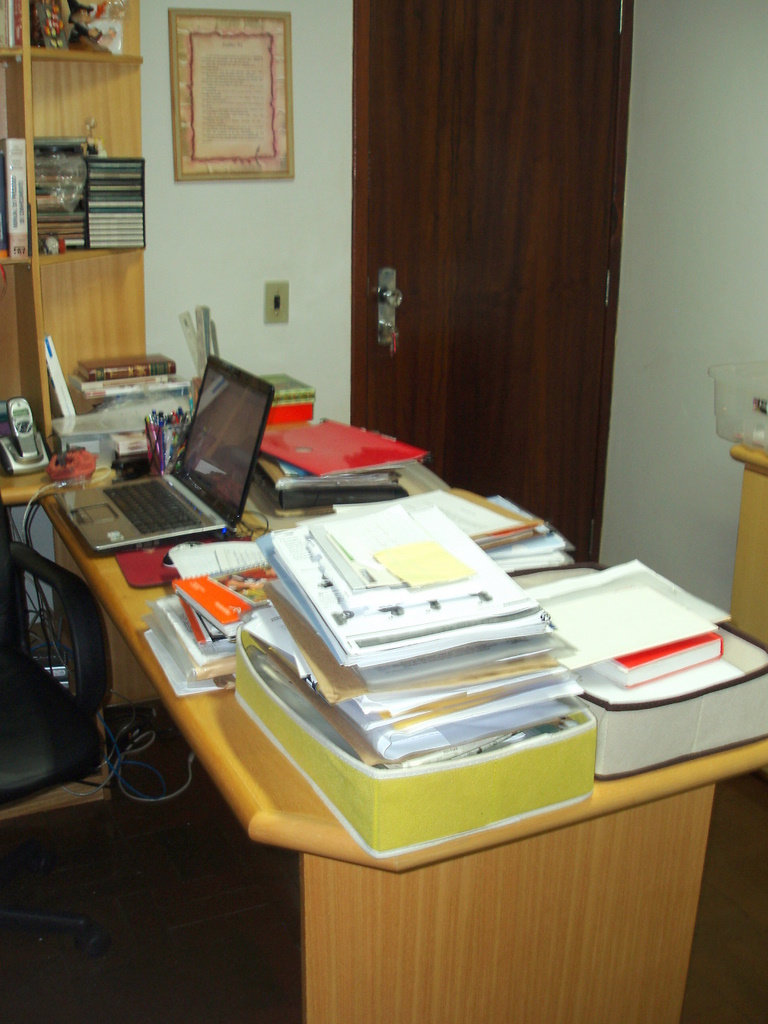Paper Problems ~ By Deb J
When I began helping my friend, S, declutter, there were decades of paper archives: phone bills, utility bills, bank statements, medical papers, taxes papers, magazine clippings, newspaper clippings, catalogs, travel memorabilia, recipes, greeting cards, letters, and hundreds of photos (organized by year). Much of this was stacked in boxes in the garage or office with various other locations for smaller boxes or bags. It was a nightmare of unorganized, mostly unneeded paper.
Looking over the mess, it was apparent that this was going to be a huge undertaking. How did this happen? Why would someone let things get this bad? It all comes down to priorities, understanding and dreams. Too many times we feel we don’t have time to deal with something at a specific point in time. Once we put it off, things tend to pile up and become something we really don’t have time for. Other times we may not know what we need to keep and what is no longer important. We often cut out an article or copy down a recipe with thoughts of using it soon only to find that months or years later it is still in a pile of to-do’s. Referencing saved articles, magazines, newspapers, and recipes seldom happens.
The first step in decluttering my friends mountain of paper was to open all the boxes just to see what was in them. It turned out that in this case most of the boxes were all a jumble with no organization whatsoever. Ugh! This represented more hard work. What needed to be done was to deal with one box at a time and sort all of the paper into piles of like topics. All of those piles then needed to be sorted to decide what to keep for tax or other official purposes. Once all this was done the shredding started. Hour after hour of shredding at intervals produced over 14 big trash bags.
When it came to the photos, while sorted into years, nothing else had been done to them. Tossing all the photos that were blurred, too dark, too light, duplicates or with poor composition was the first task followed by sorting according to event. Since S is a scrapbooker, she now has her photos ready to be placed in layouts.
S has no children that would have inherited this mess but here would still be someone who had to deal with it all. Paper is now one thing that will cause fewer issues for the person who is left with the job. Having been through the death of my father and dealing with all that entails, I am glad I was able to guide S to declutter the paper.
Today’s Mini Mission
Declutter some wall art or empty picture frames you have never use. Another thing my son let go of last week.

